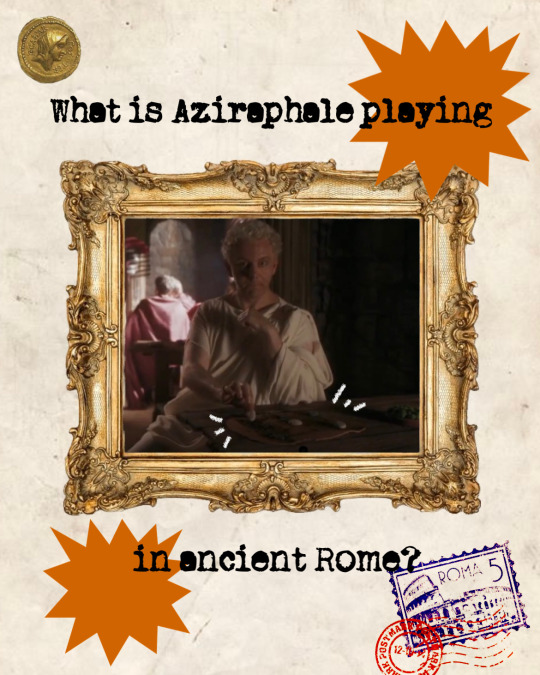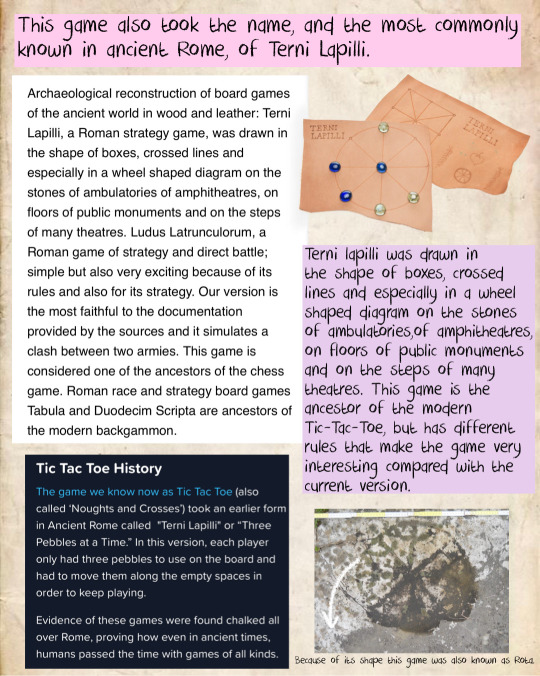#dinner with trimalchio
Explore tagged Tumblr posts
Text
Rip Trimalchio you would've loved keeping up with the Kardashians
#Trimalchio#dinner with trimalchio#Trimalchio's dinner#Cena Trimalchionis#petronius#satyricon#classics memes#classics#ancient rome#roman mythology#greek drama#noveau riche#kim kardashian#Kardashians#keeping up with the kardashians#geordie shore
4 notes
·
View notes
Text




#just search Petronius' Satyricon and then come back to this#now imagine Azi at Trimalchio's dinner#good omens#good omens 1x03#hard times#aziraphale#crowley#david tennant#michael sheen#petronius
29 notes
·
View notes
Text
Sometimes I feel like I'm missing out on something by not being more involved in writers' organizations and big-name writing groups and stuff like that, but every time I get a peek inside the gilded cage I'm reminded that there's nothing good happening in there. They're just having dinner with Trimalchio.
104 notes
·
View notes
Text

Into the Cracked Earth (OST)
Trimalchio is a character in the 1st-century AD Roman work of fiction Satyricon by Petronius. He features as the ostentatious, nouveau-riche host in the section titled the "Cēna Trīmalchiōnis" (The Banquet of Trimalchio, often translated as "Dinner with Trimalchio"). Trimalchio is an arrogant former slave who has become quite wealthy as a wine merchant. The name "Trimalchio" is formed from the Greek prefix τρις and the Semitic מלך (melech) in its occidental form Malchio or Malchus. The fundamental meaning of the root is "King", and the name "Trimalchio" would thus mean "Thrice King" or "greatest King".
The Satyricon has a lengthy description of Trimalchio's proposed tomb (71–72), which is ostentatious and lavish. By the end of the banquet, Trimalchio's drunken showiness leads to the entire household acting out his funeral, all for his own amusement and egotism.

#i was gonna turn this post into a wholeass essay but i aint got brainpower for that. please just tell me you get what im trying to say#thanks 👍#aventurine#hsr aventurine#hsr#honkai star rail#chats#btw he makes me sick (bc i cried so much over him)
30 notes
·
View notes
Text

Miniature Skeleton, bronze, 25 B.C. – A.D. 100. Getty Villa, The Roman Villa
«Made of bronze, this miniature skeleton features round eye sockets and a wide, grinning mouth with large upper teeth. Pin holes in the clavicle bone show that the arms were separately attached and moveable. The same is true of the pelvis bone where the left femur is still attached. The other end of the femur also has a pin hole for the attachment of the tibia. Only the pin remains of the right leg. The neck and head are also attached by pins. Most of the right-side ribs and both arms of the skeleton are missing. The Romans frequently linked images of banqueting and death in both literature and the visual arts. In Petronius' satirical novel, the Satyricon (A.D. 60s), Trimalchio, the crass, nouveau-riche host of a dinner party, brings out a small silver skeleton between courses. The skeleton has flexible joints, and after posing it on the table in various ways, Trimalchio recites a poem to the effect that life is short and should be enjoyed before becoming a skeleton like the one he displays. He declares: “Alas for us poor mortals. Thus we shall all be, after Hades takes us away. Therefore, let us live while it goes well with us.” This bronze skeleton may have been used in the same manner. Although now missing several limbs, it too is jointed in a way that allows it to be posed or shaken so that it jumps and dances. Several similar skeletons are known, including one in silver found at Pompeii.»
28 notes
·
View notes
Text
During the cena, the actuarius, “account-keeper”, reads out the acta beginning with the date: “seven days before the kalends of August” (VII. Kalendas Sextiles, 53.2 - July 26th). The month of Sextilis had been renamed Augustus in 8 BCE, and so its usage here is odd.
Is Trimalchio here attempting to sound Republican? Perhaps he is expressing a sense of nostalgia as it concerns his public image. Since the acta is imitative of a public announcement, then, it makes sense that Trimalchio would wish to represent himself in a way that shows traditional republican values
In this way, we see Trimalchio imitating the very figure he erases by making this change. What I mean by this is that the change leads to Augustus being removed from the Roman calendar.
The simple act of using Sextilis instead of Augustus signals to the reader what is missing and there is no mistaking that it is a reference to the Augustus since it was for him specifically the month was renamed. This is one of the many occurrences during the dinner of a charged absence.
#tagamemnon#petronius#satyrica#Augustus#ancient rome#latin language#classics#just dissertation things
74 notes
·
View notes
Note
📚 — muses? surprise me!
Send “📚” and I will flip to a random page in a book and use the first line of dialogue I see as a starter. @fadewalking | Felassan & Michel - From The Satyricon, Dinner With Trimalchio by Petronius
"I never learned geometry or criticism or hogwash of that kind, but I know how to read words carved in stone and divide up to a hundred, money, measure, or weights. Come on, I'll lay you a little bet... Ready? Then answer me this: 'I come long and I come broad. What am I?' I'll give you a clue. One of us runs, the other stays put. One grows bigger; the other stays small."
#ask#fadewalking#c: michel#c: felassan#// this was part of a long-ass 2 page monologue and i had to edit slightly#but damn that dinner got Crazy
1 note
·
View note
Text
I think it might well be the game mentioned in The Satyricon:
"A boy was at his heels with a board of terebinth wood with glass squares, and I noticed the very last word in luxury - instead of white and black pieces he had gold and silver coins."
The notes in my edtion say about this:
"Probably the game called latrunculi - a game something between draughts and chess, although sometimes dice played a part in it. The object was to put an opponent's piece between two of one's own and so capture him. There is at least one Egyptian picture of a solo game, although normally it was played between two people."
So yes, Ludus Latrunculorum seems to fit what we see on screen and even allows for Aziraphale's solo game. Also this would strenghten this scene's connection to The Satyricon, which was written by Titus Petronius Arbiter, possibly the same Petronius referenced later in the scene. (And thus, my hc of them attending Trimalchio's dinner was born lol.)
Good Omens and ancient Rome board games:
I remember looking up ancient board games and came across so many versions of tic-tac-toe within the area of Rome. These are some of the names they had back then!




413 notes
·
View notes
Text
Thanks to the help of a wonderful app called Legentibus I managed to get through a text titled "Cena Trimalchionis" = Dinner of Trimalchio. This text is a part of a bigger book called Satyricon that I attempted to read at one point, but found it way too difficult and time consuming to read. Especially with the amount of unfamiliar vocabulary.
With Legentibus you can look up unfamiliar words right away which sped up the reading process. Still according to the app it took me 6 hours to read the whole thing. I did read it in bits and pieces over the span of a few weeks. There's actually a progress tracker in the app so I'd read about 10% of the text every day.
How was the story? It was interesting and grand. Trimalchio himself is an interesting character. He's a former slave who became extremely rich and is very vain and wasteful. His dinner is excessively lavish and the guests there are even weirder. I love that in three occasions some slave messed up slightly and Trimalchio wanted them dead, but all the guests begged him to spare them. So he did. Probably so he might seem "merciful" to his guests.
The description of the foods and the entertainment felt like it was out of this world. They served all kinds of meats from birds to pigs, sausages, fruits, nuts, pastries, eggs etc... There was one dish that was adorned with all kinds of meat and Trimalchio starts pretentiously explaining how all his dishes have a deeper artistic meaning, because he is just so sophisticated.
Trimalchio is also very full of himself, demanding ridiculous things after his death and acting like he's the most precious and important thing in the room. At one point a pretty slave boy entered the room and Trimalchio immediately ran up to him and smothered him with kisses. His wife (not sure if I got that correctly) Fortunata saw this and was not happy at all and started yelling at Trimalchio that he can't control his urges and called him a pig. He of course in retaliation threw a goblet at her face.
A lot of fun stuff happens during the dinner like this one guy going crazy and he starts roasting everyone around him, which Trimalchio finds amusing. The end of the dinner is probably my favorite part. Trimalchio, absolutely wasted on wine, asks everyone to pretend as if he was dead and this was his funeral. Then one slave boy stands up and starts singing in such a loud and horrible voice that the guards in the neighborhood start thinking there's a fire or something happening in Trimalchio's place and they storm in dousing everyone with water. During this commotion our horrified main characters decide to sneak away from the dinner, as if they really were fleeing a fire. What a story!
If you're a Latin enthusiast like me I do recommend reading Cena Trimalchionis. And getting the Legentibus app! There's some free texts you can read, but a lot of the good stuff has to be paid for with a subscription. Legentibus is truly a wonderful source of Latin texts and a great way to keep learning. As I said you can look up any unfamiliar word just by tapping it on the text, and some texts have a commentary that explain why some things are said or written the way they are.
0 notes
Text

Tina Aumont and Don Backy in Satyricon (Gian Luigi Polidoro, 1969).
From: https://archivio.unita.news/
With this cool pic I let you know that I'll be uploading Satyricon screecaps!! :D
I found, years ago, a youtube video, but I guess it was a censored version as lots of lobby cards published around the internet are from scenes that in the video weren't shown, but I hope one day we will find the whole film!!
Note: From now on I will not tag my screencaps, as the films are shown on the internet. You deserve to see the photo as it is and this tumblr is growing thanks to you. To show respect towards Tina, filmmakers/photographers and fans/admirers, screencaps will not be tagged. All the previous screencaps posted will be replaced little by little, and I'm thinking the same about the magazines but I'm not that sure... We will see...
Information from the film:
Satyricon, also named The Degenerates, is an Italian film from 1969 directed by Gian Luigi Polidoro. Like the more famous version made by Federico Fellini it is loosely based on Petronius’s work, Satyricon, a series of bawdy and satirical episodes written during the reign of the emperor Nero and set in imperial Rome.
Plot (it may contain spoilers)
Encolpius and Ascyltus are two corrupt boys roaming the mean streets of Rome at the time of the empire of Nero. Both boys constantly engage in conflict with each other for the love of the young Gitone, who often prefers Ascyltus, infuriating lover Encolpius. Due to a misunderstanding, the three end up in the house of a rich freedman: the crude Trimalchio, who in his rich dinner amazes guests with exuberant courses.
Escaping from the house of the crude man, Ascyltus and Encolpius continue to fight for Gitone until Encolpius makes friends with the poet Eumolpus, while Ascyltus dies of diseases. Gitone is now only in the company of Encolpius, who cannot satisfy Gitone’s amorous pleasures because of a curse hurled at him by the god Priapus, the protector of the cocks. After inheriting a rich mansion by chance by a senator named Pomponius, Encolpius, Eumolpus and Gitone go in a city where their troubles do not end because of the magic spells of a witch, soothsayer of the god Priapus.
Cast
Don Backy - Encolpio
Franco Fabrizi - Ascilto
Francesco Pau - Gitone
Mario Carotenuto - Eumolpo
Tina Aumont - Circe
Valérie Lagrange - Trifena
Amerigo Tot - Lica (Trifena’s husband)
Graziella Granata - Antonia
Piero Gerlini - Abinna (Antonia’s husband)
Corrado Olmi - Seleuco
Clara Colosimo - Seleuco’s Wife
Paola Tedesco - Criside
Ugo Tognazzi - Trimalchione
The film was released on 27th March 1969.
#Tina Aumont#Don Backy#Gian Luigi Polidoro#Satyricon#1969 Satyricon#actress#film#italian film#my screencaps#here we go
13 notes
·
View notes
Photo
Okay hi I’m an idiot and didn’t notice at first but can we talk about how Good Omens made a subtle reference to the Satyricon and The Dinner Of Trimalchio in this scene??








#hi i love classics easter eggs#sorry if this has been done before#but its just so cool#good omens#aziraphale#crowley#good omens tv#satyricon#satyrica#dinner of trimalchio#trimalchio#petronius#classics#latin#satire#roman satire#dinner of trimalchio ch/section 70
6K notes
·
View notes
Note
So I am writing a paper on Classical werewolf elements in Teen Wolf (there are a few!), so as part of my research I'm dwelling a bit into Greek and Latin werewolf folklore. This is what I have written so far...:
Greek and Roman stories of humans transforming into wolves fit only with difficulty in the established categories of ‘werewolf’ that appear in the literature about the supernatural,[1] because they are a range of examples where humans transforming into wolves at will, forcefully, regularly, permanently, and temporarily. Some of the human-wolf transformation stories can be excluded from proper werewolf lore, as they involve witches, sorcerers and herb collectors transforming themselves or other people. These include mentions of Circe turning men into wolves,[2] shamans deep in Scythia who could turn their people into wolves,[3] and witches and herb-collectors like Meroe who could turn whenever they wanted.[4] Similarly, ‘lycanthropy’ was considered to be a medical condition in later medical treatises; a melancholy of sorts that caused those who suffered it to vague at night time around the streets with dogs (and wolves), bumping their shins against tombstones.[5]
However, at least nine stories of true werewolves have come down to us in various forms, and they are a testimony to the rich werewolf folklore of the Classical world.[6] The most famous example nowadays is the story-within-the-story about the soldier in the Satyricon.[7] In this story, Niceros tells during Trimalchio’s dinner how he was travelling with a soldier who, during the night, took off his clothes by a monument in a graveyard, pissed around them, and turned into a wolf while his clothes turned to stone. The most repeated and widely-circulated story in antiquity, nevertheless, is that of Lycaon of Arcadia and the rites associated with the cult of Zeus Lykaios, which will be detailed below.
From these Classical stories about wolf shape-shifters, however, we cannot create a ‘Classical werewolf archetype’ that matches every story. This is, above all, because werewolves belonged in Greek and Latin folklore, and their sole purpose was to be the main focus of a story. Because of this, they were never part of a larger narrative (or an educated one, Lycaon being the main exception), and the werewolf existed in the way and form required by the story it appeared in.[8] We can, however, highlight a handful main characteristics that seem common across these tales.
To start with, Classical werewolves all show a full transformation from human to wolf and vice versa, without it being possible which one is the ‘original’ shape. From this we can infer that these werewolves kept their human sense of self even while in wolf form.[9] This preservation of the human consciousness is key, because werewolves in wolf form must be able to take certain conscious decisions in order to shift back. Discarding their human clothes and recovering themwere essential steps in the transition human-wolf-human, and the same could be said about avoiding human contact or interaction with other humans.[10] Also, the way becoming a werewolf was transmitted was not through a bite or a scratch, but rather by breaking bread with a stranger,[11] something perhaps designed to warn travellers, as a moral to werewolf stories. Lastly, we find that their eyes glow, sometimes with fire, to signify their supernatural essence.[12]
The stories about Lycaon are intrinsically connected with a series of religious rituals that existed in Arcadia and that were focused around the cult of Zeus Lykaios, offerings that included human sacrifices, and rites of passage.[13] These were already discussed in Platonic texts and compiled by Herodotus,[14] but Pliny discusses these rituals and links them to werewolf folklore (fabulae), albeit if simply to underline the gullibility of the Greeks. Pliny and, later, Pausanias, mention how during the ceremonies linked to the temple of Zeus Lykaios, local young men go through a rite of passage in which, after de-robing themselves and making the recommended offerings, they cross a pond from which they emerge as wolves, and they live in that wolf form for years (up to nine), only to return back home as men if they abstain from having contacts with other humans, eating human flesh, or staring into a man’s eyes.[15]
These defining characteristics do not seem to be much, but are already very different from medieval perceptions of the werewolf ―the kind of which are later adapted in nineteenth-century Gothic literature and, from them, to modern fiction.[16] Classical werewolves do not ‘shift’ into wolf-human hybrids, nor do they become senseless monsters; and if they go on killing sprees, it is usually sheep that are the target, not directly other humans.[17] In some aspects they are similar, since werewolves follow deeply-rooted Indo-European tales of the dangers that lie beyond the known space, especially in the forest where wolves dwell, [18] and it is possible that the moon had an effect on their transformation,[19] but the werewolves of Classical folklore fail to match the current expectations of werewolves in fiction.
[1] Ogden (2021) 7, n. 27, citing de Blécourt (2015).
[2] Hom. Od. 10.210.
[3] Hdt. 4.105.2.
[4] E.g.: Apul. Met. 2.22-5; Verg. Ecl. 8-9.
[5] Metzger (2015).
[6] Ogden (2021) 206-7.
[7] Petron. 61-2.
[8] Odgen (2021) 8-9, 210.
[9] Odgen (2021) 7.
[10] Ogden (2021) 82-4.
[11] Petron. 62. Niceros swears he would not share food with the man after finding out he was a werewolf: nec postea cum illo panem gustare potui, non si me occidisses. Cf. Ogden (2021) 99.
[12] Ov. Met. 1.238 idem oculi lucent; cf. Ov. Am. 1.8.15-6, Philostr. VA 4.10.
[13] Odgen (2021) 178-86.
[14] Ps. Plato Min. 315b-c and Hdt. 7.197, as cited by Ogden (2021).
[15] Plin. Nat. 8.80-1; Paus. 8.2.6. Cf. Gordon (2015) 47.
[16] Crossen (2019).
[17] Gordon (2015).
[18] Bernhardt-House (2006) 160.
[19] Odgen (2021) 191-2.
OHH THIS IS SO COOL.
I had never heard of like actual lycanthropy diagnoses?? That’s sick. “Bumping shins against tombstones” what a symptom!!
And the idea of being unable to pin down the archetype by virtue of werewolves being designed however the story needed them to be– so true!! I hadn’t thought about that but it definitely changes how our perceptions of what a werewolf is "supposed" to be.
And the breaking bread story– I understand it serving as a warning, that makes sense, but there’s something very sweet there too. Taking that idea and putting it in a teen wolf lens (how can I not?) it just indicates something more built on community which I love!
Thank you sm for sharing!! :D
4 notes
·
View notes
Text
At this point I don't even wanna grouse about it. They can have dinner with Trimalchio if they want to.
22 notes
·
View notes
Note
Hello again! I send two asks some months ago, but at this point I think they were swallowed whole in the dark depths of this wicked site. So I’ll put them together here: 1) do you know some good fics with Crowley and fem!Aziraphale? and 2) good fics set in Ancient Rome? Thank you so much, and keep up the good work!
Do you know of any works featuring Femme!Aziraphale? I read serpent and the lady by summerofspock and now I kinda want more.~ @wearestarstuff618
Hi hi!! Do y’all have any recs for BAMF female presenting Aziraphale? Preferably within the canon universe (or canon adjacent lol). Thank you so so much!! ~ anon
Hello!
I used this Female-Presenting Aziraphale tag to find some fics and this Female Aziraphale tag as well. Here’s some of what I found:
Coping With a Recalcitrant Bloodsucker by ZephyrOfAllTrades (M) - wip
'Get out there and impale some hearts.' Quite a romantic phrase for something so bloody…. well, bloody.
Aziraphale Van Helsing had yet to kill her first vampire. Despite her family lineage, she would rather attack a box of chocolate than the undead. That is, until misunderstandings labeled her as 'compromised' and married off to an insufferable one.
Anthony Crowley, Duke of Glasgow and vampire-demon, vowed only to marry the one worthy of being his eternal vampire bride. Cue one night of passion(ate drinking - disappointingly just that and nothing more), and he wondered if permanent discorporation is better than years being shackled to a Van Helsing.
As Time Goes By by teatales (E) - wip
Mr Anthony Crowley was fine with being alone. He had his car and his plants and his career as a travelling salesman, and it was fine. Even with his awful new bosses, he had no plans to quit selling watches anytime soon. What else would he do?
Mrs Aziraphale Ingels had been stuck in Tadfield ever since her husband passed away a year ago. She tried her best not to dwell on how lonely she felt as she filled her days with books and baking while waiting for the inheritance to be finalised. Only then could she consider what she wanted to do with the rest of her life.
A chance meeting, a blossoming friendship, and Aziraphale and Crowley soon find themselves falling in love with the stranger they met only a few months ago. But neither believe the other could ever love them back, and both have things they're terrified to share.
As Time Goes By is a timeless romance set in the 1950s about acceptance, being less alone than you think, and watch-related puns. Updates weekly.
The Crowleiad by PrincessDianaArtemis (E)
On the island of Antikythera, where the people were far from copious, an angel waits to welcome her husband home from war.
Here’s one that’s both Female!Aziraphale and in rome @irohasong!
kneel on my mattress by IsleofSolitude (E)
Julius Cesar's death has left a power struggle in his wake. Aziraphale and Crowley, ever on opposite sides, meet at a party and choose to find other ways to pass the time.
And here’s the tag I used to find Ancient Rome fics!
When in Rome by DarkmoonSigel (M)
They have some oysters. They then have a lot of wine. Sexy wing shenanigans happen, and then it gets weird.
Trimalchio Of The Eastern Gate by WolfieOnAO3 (G) - wip
Rome, 37 AD. In which an angel invites a demon for dinner...
Ubi Nihil Vales, Idi Nihil Velis by D20Owlbear, itwasadarkandstormynight (T) - wip
Aziraphale was a soldier, until he was tried for treason, was found guilty, and became a gladiator. Now he lives out his days fighting in the arena of the Amphitheatrum Flavium.
Crowley is a masseuse in the gladiator schools. She hadn’t always been one, but as a slave, it wasn’t like she could choose how she spent her days. As far as work goes, it’s not bad.
When they met, they became instant friends, however unlikely it may have seemed. But when Aziraphale is offered a chance of freedom, he doesn’t want to leave Crowley. Crowley, however, sees a chance to escape—a chance for both of them to be free.
Will Aziraphale be able to overcome his self-doubt and accept his freedom? And will Crowley be able to go with him?
in keeping with tradition by Phoenix_Soar (E)
Running into Aziraphale in Rome during the notoriously debauched Festival of Saturnalia gives Crowley the chance he's hardly dared to dream of
OR
Crowley accidentally invented the New Year's Kiss tradition as an excuse to kiss Aziraphale
~ Mod G
#good omens#ineffable spouses#ineffable husbands#adult omens#fem!aziraphale#female presenting aziraphale#human au#ancient rome#zephyrofalltrades#teatales#princessdianaartemis#isleofsolitude#darkmoonsigel#wolfieonao3#d20owlbear#itwasadarkandstormynight#phoenix-soar#irohasong#wearestarstuff618#anon#mod g
54 notes
·
View notes
Photo

Title page: The Dinner of Trimalchio, Lovis Corinth, 1919, Harvard Art Museums: Prints
Harvard Art Museums/Busch-Reisinger Museum, Antonia Paepcke DuBrul Fund Size: 45.6 x 36.7 cm (17 15/16 x 14 7/16 in.) Medium: Letterpress printing on cream wove paper
https://www.harvardartmuseums.org/collections/object/341582
3 notes
·
View notes
Text
We can see performance in the Cena as ritual given the fact that Trimalchio’s dinner was an oft-repeated event. Based on internal evidence, we know that those in attendance (aside from Encolpius and his friends) have seen the show before, perhaps multiple times. Also, the dining room itself is characterized as a sacred space as it must be entered right foot first (an enslaved member of the household stands by the dining-room door and reminds everyone to enter in a religiously respectable manner). Everything that takes place during the dinner, therefore, can be characterized as an imitation of ritual.
On a similar note, most argue that the performance ends when Trimalchio's wife, Fortunata, calls Trimalchio canis, "a dog", after he kisses one of the enslaved boys. Encolpius tells us that it was at this moment that the good nature of the dinner ended, but that does not necessarily mean the performance stopped, only that the tone of the performance shifted. The mood quickly becomes tragic as tears begin to flow: Fortunata cries, Trimalchio cries, and even Scintilla and Habinnas cry. The change in mood leads to Trimalchio's extended speech which doubles as an autobiography and ultimately his mock funeral. It seems unlikely that the mock funeral would have been introduced without the major shift in tone.
#tagamemnon#petronius#satyrica#Trimalchio#satyricon#just dissertation things#ancient rome#classics#ancient ritual
9 notes
·
View notes